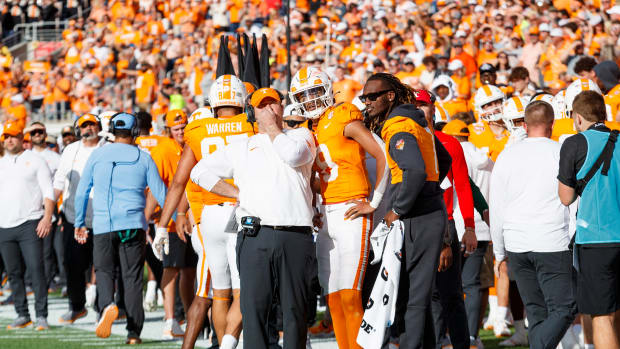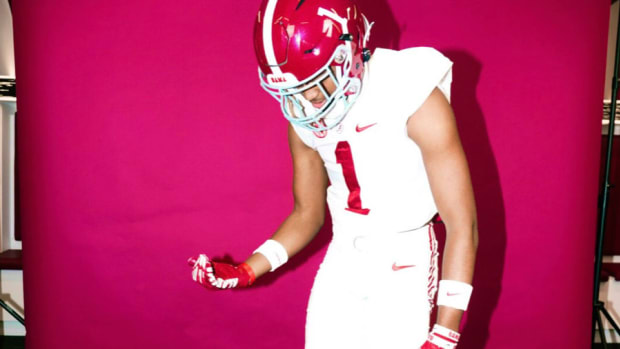Georgia Reportedly Did Not Support Cade Mays’ Immediate Eligibility Waiver
The NCAA denied Tennessee offensive lineman Cade Mays’ transfer waiver on Monday afternoon in what was one of the most surprising events of the offseason. The University of Tennessee Athletic Department has announced that it plans to submit an appeal in hopes of getting the original denial overturned; however, with the Vols’ season-opener against South Carolina looming on the horizon, it seems like it will be difficult for the NCAA to issue a ruling in time for Mays’ first game.
The former Georgia offensive lineman has hired Gregory Isaacs, a local Knoxville attorney, to represent him during the appeal. During a recent interview with Jimmy Hyams of WNML Radio, Isaacs announced what many Tennessee fans had suspected: Georgia did not support Cade Mays’ waiver for immediate eligibility. “Georgia was not supportive in Cade’s transfer,” said the attorney on WNML Radio. It is worth noting that while a university can not block a waiver from being accepted, they have influence in the matter — and Mays would likely have had a better opportunity to earn immediate eligibility if the Bulldogs had chosen to back their former player.
“The focus (of the appeal) will be on Mays and the toxic environment he was put in (at UGA),” explained Isaacs later in the interview. “He didn’t transfer to Alabama or Oklahoma, but because of his emotional well-being, he decided to come home where he feels safe.” Isaacs, who previously told Knox News that he was surprised and disappointed by the NCAA’s decision, says that he will make the appeal look slightly different from the original waiver.
Mays was originally represented by attorney of law Tom Mars; however, Mars would choose to drop the case after accepting a position with the NCAA. Mars called the case a “slam dunk” when he first took it, but would later say that he believed the NCAA may be using a dartboard to make the decisions after he was denied.
It is also worth noting that the NCAA recently passed a new waiver which will prevent athletes from losing a year of eligibility this season, regardless of whether they play or not. Therefore, Mays will still have two seasons of eligibility remaining at Tennessee no matter what the NCAA decides on.
If Mays’ appeal is approved, then his first match-up at Tennessee will be on September 26th in Williams-Brice Stadium against the South Carolina Gamecocks. He would also play his former team on November 10th in Athens, which would undoubtedly be an emotional game for both sides.




